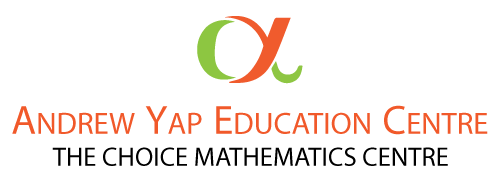How Math Tuition Bridges the Gap Between Secondary and JC Mathematics
The jump from secondary school mathematics to Junior College (JC) mathematics in Singapore can be overwhelming for many students. The syllabus becomes more challenging, the pace of lessons quickens, and students are expected to develop advanced problem-solving skills. Many find it difficult to keep up, leading to frustration and a lack of confidence in their mathematical abilities.
Math tuition plays a crucial role in helping students bridge this gap. With structured guidance, expert explanations, and targeted practice, tuition reinforces key concepts, sharpens problem-solving skills, and prepares students for the rigorous demands of JC-level mathematics.
For students who struggled with certain topics in secondary school, secondary math tuition provides the additional support needed to strengthen their foundation before progressing to JC.
Understanding the Gap Between Secondary and JC Mathematics
Differences in Curriculum and Content
One of the biggest challenges students face when transitioning to JC mathematics is the significant increase in content difficulty. While secondary school math focuses on fundamental concepts and straightforward applications, JC math introduces new and more complex topics such as calculus, vectors, and probability distributions. These require a deeper understanding of mathematical theories and their real-world applications.
Additionally, students must integrate multiple concepts when solving problems rather than applying a single formula or technique. This shift requires higher-order thinking skills and a solid foundation in secondary school mathematics.
Pace and Intensity of Lessons
JC mathematics is taught at a much faster pace than secondary school. Within a short time, students are expected to grasp difficult concepts, complete assignments, and prepare for frequent tests. Unlike secondary school, where teachers may spend more time revising topics, JC lessons move quickly, leaving little room for students to catch up if they fall behind.
Students who struggle to adapt may find themselves feeling lost and unable to cope with the increasing workload. Developing strong study habits and seeking additional support through tuition can be key to staying on track.
Expectations of Analytical and Problem-Solving Skills
JC mathematics places a strong emphasis on analytical thinking and problem-solving. Questions in A-Level examinations often require students to apply multiple concepts in unfamiliar situations rather than simply recalling formulas.
This can be daunting for students who are used to solving straightforward questions in secondary school. To excel, they must develop critical thinking skills, learn to approach problems systematically and practice applying their knowledge in different scenarios.
How Math Tuition Addresses These Challenges
Reinforcement of Fundamental Concepts
A strong foundation in secondary school mathematics is essential for success in JC. Math tuition helps students reinforce fundamental concepts, ensuring they fully understand key topics before moving on to more advanced ones.
For example, algebra and trigonometry are crucial in JC mathematics, and any gaps in understanding these topics can make new concepts even harder to grasp. Tuition provides a structured revision to strengthen these foundations, allowing students to progress with confidence.
Bridging Knowledge Gaps
Not all students enter JC with the same level of preparedness. Some may have struggled with certain topics in secondary school, making it even more challenging to keep up with the JC syllabus.
Math tuition offers targeted lessons that focus on specific areas where students need improvement. Tutors identify weaknesses and provide additional practice to help students overcome difficulties, ensuring they do not carry gaps in knowledge into their JC studies.
Development of Advanced Problem-Solving Skills
Since JC mathematics places a strong emphasis on problem-solving, tuition centres train students to tackle complex questions effectively. Through exposure to a variety of problem types, students learn different techniques for breaking down difficult questions and solving them step by step.
Many tuition centres incorporate past-year A-Level examination questions into their lessons, helping students familiarise themselves with the format and difficulty level of the actual exams. This structured practice improves their ability to handle challenging problems with confidence.
Building Confidence and Reducing Anxiety
The sudden increase in difficulty and workload can cause stress and anxiety for many JC students. Math tuition provides a supportive environment where students can ask questions, clarify doubts, and receive guidance without feeling pressured.
Regular practice and personalised attention from experienced tutors help students feel more prepared for tests and exams. As they gain a better understanding of JC mathematics, their confidence grows, allowing them to approach their studies with a positive mindset.
Partnering with Andrew Yap Education Centre for a Seamless Transition
The transition from secondary school to JC mathematics can be challenging, but with the right support, students can navigate this change successfully. Math tuition provides the structured guidance and practice needed to bridge the knowledge gap, helping students develop the confidence and skills required to excel.
For students in Singapore looking for expert guidance, secondary math tuition at Andrew Yap Education Centre ensures they build a strong foundation before progressing to JC-level mathematics. With proven teaching methods, experienced tutors, and a structured curriculum, the centre provides the support needed for students to thrive in their mathematical journey.
If you are seeking a trusted tuition centre to support your JC mathematics studies, consider Andrew Yap Education Centre. Our expert tutors and well-structured programmes can help you achieve outstanding results and master the subject with confidence.


